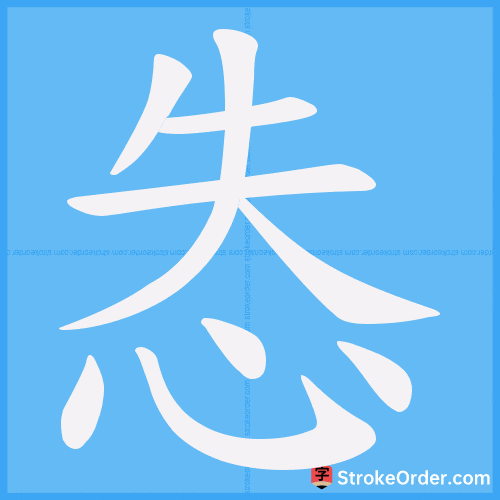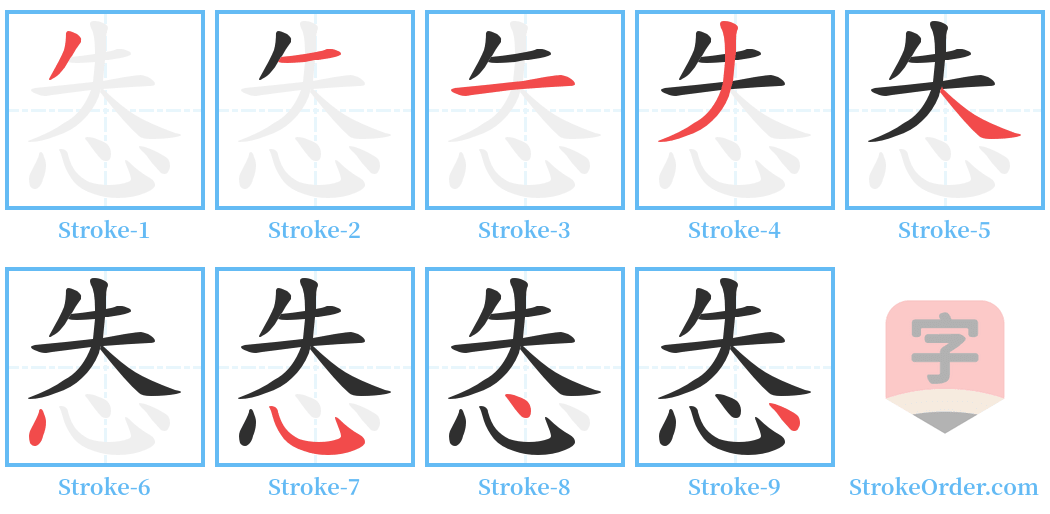怣 Stroke Order
Animated Stroke Order of 怣

Stroke Order Diagrams for 怣

Information of 怣
Pinyin
yóu
Radical
心
Strokes
9 strokes
Usage
★★
Definition
怣:
1. Anciently the same as "尤" (yóu).
2. (Adjective) Phonetic compound, small seal script form, composed of "乙" (yǐ) and phonetic component. "乙" represents the appearance of plants bending and growing; when hindered, it shows its excellence. The original meaning is: the most excellent.
Same as the original meaning, "尤" (yóu) also conveys the idea of being different. — "Shuōwén Jiězì" (说文) states this. Zhu Jùnshēng commented: this character should relate to an ancient form of "犬子" (quǎn zǐ - dog child). Examples include: "尤功" (yóu gōng - most outstanding achievements; also refers to the person with the most outstanding achievements).
"Astonishing, the wine consumed publicly, generously rewarded, conferred upon followers. Sīmǎ did likewise. Zhāng Gǎi was astonished as well." — "Zuo Zhuan" (左传).
3. (Verb) To blame; to hold accountable, especially in regard to the household. — "Zuo Zhuan · Xiānggōng Year 15". Note: "This means to blame for faults". Examples include: "尤苦" (yóu kǔ - to criticize harshly; to slander), "尤恶" (yóu è - to condemn and detest), "尤怨" (yóu yuàn - to accuse; to harbor resentment).